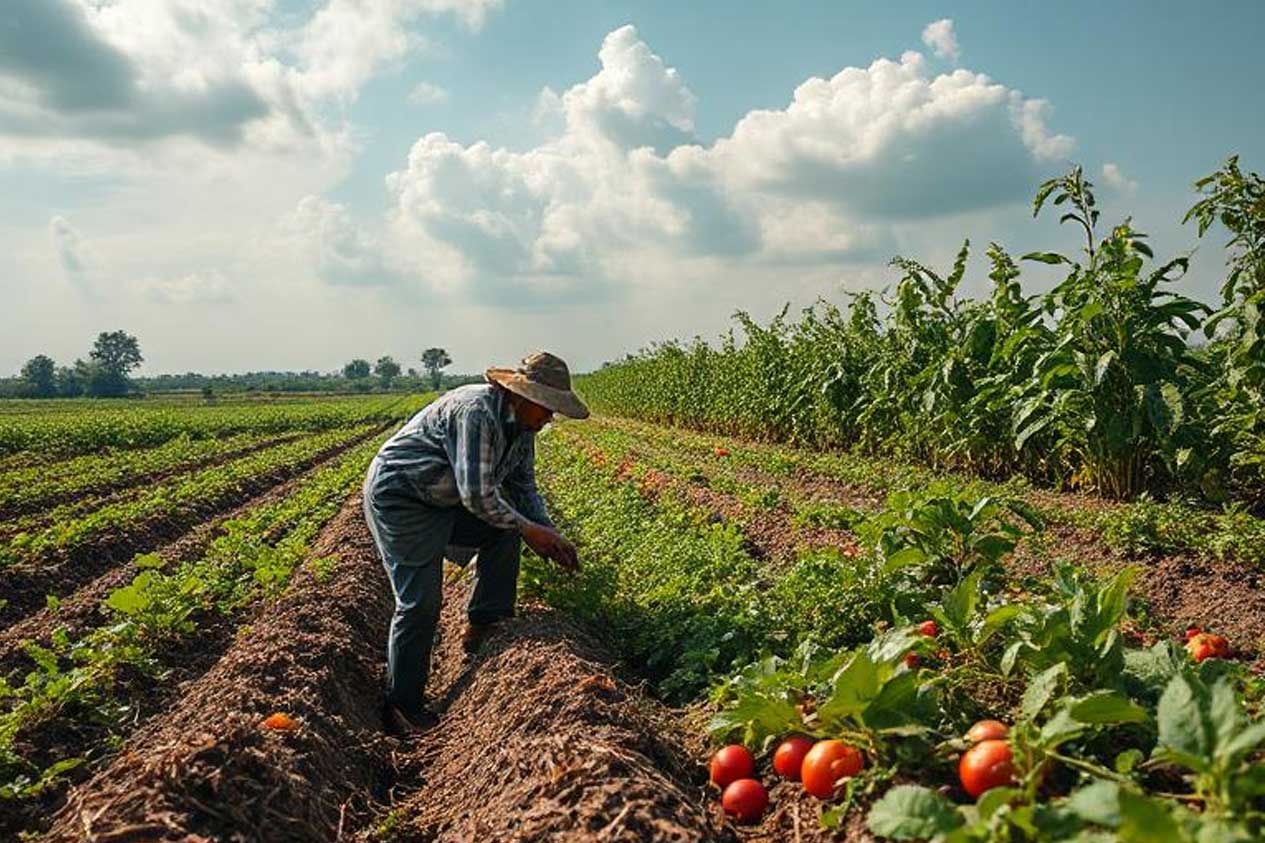Seasonal Worker visa: More migrant labourers assert Farm exploitation in the UK. According to information obtained by the BBC, last year saw a sharp rise in the number of foreign workers requesting assistance due to allegations of exploitation, bullying, underpayment, and subpar living conditions on UK farms.
Nearly 700 foreign seasonal agricultural labourers complained to the Worker Support Centre (WSC) charity in 2024 about the unjust treatment they were receiving from the farmers who had brought them to work.
More needs to be done to prevent migrants from being exploited like slaves, a former fruit picker told the BBC.
UK New ILR and British Citizenship Proposals Will You Be Impacted?
According to the UK government, whenever abusive behaviours were discovered on farms, “decisive action” was always taken.
Julia Quecano Casimiro, a Bolivian, arrived in the UK on a seasonal worker visa to harvest cherries for Haygrove, a farm company located in Herefordshire.
Ms. Casimiro is currently fighting for improved protection for seasonal agricultural workers and is suing the corporation in an employment tribunal over allegations of discrimination, unjust dismissal, and underpayment of wages.
The Home Office concluded in a preliminary decision that there were good reasons to suspect Ms. Casimiro of being a victim of modern slavery.
She told the BBC that she thought the extent of worker abuse was a “hidden problem” and that “many seasonal workers still have their rights violated today.”
“We don’t have access to any help or support, so what is occurring is quite severe.
There will be more victims of modern slavery if the UK government does nothing to halt what is occurring.
According to a Haygrove spokesman, Ms. Casimiro’s dissatisfaction stemmed from a difference between the face value of airline tickets and the amount that employees were loaned for them, as well as less hours of work than usual during the month of July due to unusual weather.
The business further stated that it has “never had accusations of this nature before in the history of our business” and that her claims are “materially incorrect and misleading.”
It told the BBC that its procedures “are routinely audited by a range of third-party bodies, including by the Gangmasters and Labour Abuse Authority (GLAA), the Home Office, the British Retail Consortium, Red Tractor/Assured Produce, LEAF, Soil Association and SEDEX” .
The business claimed that Ms. Casimiro’s accusations were based on a “short-lived, snapshot, atypical experience” and that she worked at Hayford for 11 days before departing with a complimentary plane ticket home.
“We take great care in ensuring fairness and equality in our recruitment and working processes,” said a spokesperson.
‘Deeply concerned’
Additionally, according to the corporation, it is cooperating with a statewide GLAA inquiry into the hiring practices of 20 Indonesian workers.
Those workers said last summer that foreign recruitment agencies had illegally charged them to go to the UK.
The spokesperson for Haygrove stated: “We are deeply concerned by claims that Indonesian workers were charged illegal fees by recruitment agents, which is strictly against our policy and principles.”
She also stated that the business “co-operated fully with investigations by the GLAA” and responded “very seriously” to any accusations of wrongdoing.
According to the statement, Haygrove is “committed to fair employment practices and the wellbeing of all our workers”
Workers are ‘invaluable’
This year, 43,000 visas for the horticulture sector and 2,000 for poultry farms will be made available under the government’s seasonal agricultural worker program.
According to a poll conducted early last year by the Department for Environment, Food, and Rural Affairs (Defra), 91% of participants said they had a good experience working on farms in the United Kingdom.
Nonetheless, the WSC, which aims to stop mistreatment of underprivileged employees, said that it had to deal with an increase in grievances on the program in 2024.
One Kyrgyz man, who worked intermittently on farms in England and Scotland for three years, told the WSC that he had been subjected to discrimination, wrongful dismissal, and living in substandard conditions.
The worker, who wished to remain anonymous in order to preserve his chances of finding employment in the future, told the BBC via a translator that he believed that standards had deteriorated over time and that farm employers were indifferent to the well-being or wage of their employees.
According to the WSC, during the course of one month last summer, its caseworkers dealt with 158 farm labourers and forwarded 19 instances involving 101 people to law enforcement. The majority of the workers were Tajik, Uzbek, Kyrgyz, and Kazakh.
The organisation wants the seasonal agricultural worker program to be reviewed for potential exploitation risks.
According to a Home Office spokesperson, its employees have conducted over 2,100 worker interviews and visited 318 farms, with advancements being made year to prevent exploitation and subpar working conditions.
“Where we believe abusive practices are occurring or the conditions of the route are not being met, we will always take decisive action,” she continued.
According to the National Farmers’ Union, British farmers “take employee welfare extremely seriously and are continually adapting the way they operate to provide the best experience for workers” and are therefore “invaluable” to foreign workers.
The great majority of employees have “a good experience in the UK which results in many returning to the same farms season after season,” a spokeswoman continued.
Seasonal Worker visa (Temporary Work)


